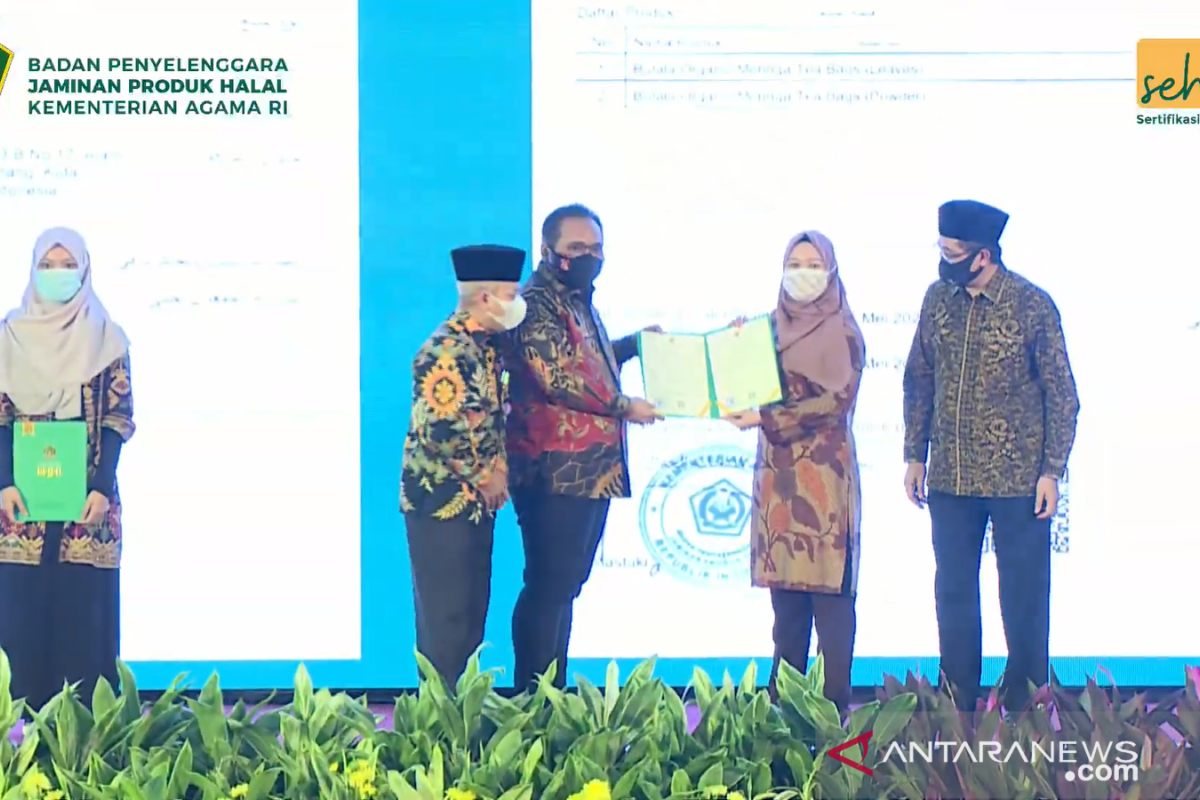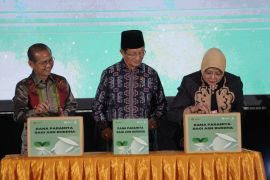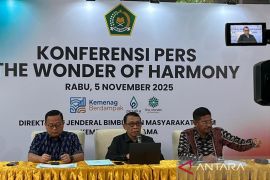"I welcome and appreciate this program. During this time of pandemic, where the business climate is (not doing so good), the presence of free halal certification for micro and small enterprises has become an oasis that fosters hope," Religious Affairs Ministry Yaqut Cholil Qoumas said while launching the program on Wednesday.
Halal certification is meant to ensure micro and small businesses players meet both hygiene as well as halal requirements and to build a positive image of halal certification in Indonesia, the minister informed.
The global community today equates halal products with quality and hygiene assurance, the minister noted. Thus, it was not so surprising that the development of halal products has continued to increase, even becoming a global lifestyle, he added.
“The Sehati program is aimed at micro and small enterprises, because most of them do not have halal certification. Through this free halal certification, it is expected that more micro and small enterprises can penetrate the global halal market," he elaborated.
Related news: Halal MSMEs require strong support to bolster export market: VP
Meanwhile, acting head of the Halal Product Assurance Agency (BPJPH), Mastuki, said Sehati is a collaborative program between BPJPH and ministries, agencies, local governments, agencies, and private players. The goal is to provide free halal certification to micro and small enterprises, he added.
"The priority for micro and small enterprises, apart from being a mandate of Government Regulation No. 39 of 2021, also aims to encourage and stimulate the national economy, which is mostly supported by micro and small enterprises players," Mastuki said.
The Sehati program initiative is based on the fact that many ministries, institutions, agencies, local governments, state- or region-owned enterprises, and the community allocate budgets for facilitating the halal certification of micro and small enterprises, he added.
In 2020, the Religious Affairs Ministry set aside a budget of Rp8 billion (more than US$560 million) for halal certification of around 3,179 micro and small enterprises, Mastuki disclosed. The same year, at least 36 local government offices assisted micro and small enterprises obtain halal certification through the Halal Product Assurance Agency, he added.
Related news: BPJPH to synergize, quicken MSME halal assurance system: VP
"This number is indeed still low when compared to the number of micro and small enterprises that have mandatory halal-certified products. The data we have gathered shows that 13.5 million micro and small enterprises are in the category of being subject to halal-certified obligations," he informed.
This year, the Halal Product Assurance Agency is collaborating with ministries, institutions, and agencies once more so more micro and small enterprises can obtain halal certificates, he said.
"Hopefully, the facilitation in the form of financing can be channeled properly, according to the target, and the benefits can be taken by as many micro and small enterprises actors as possible," he added.
Related news: Minister promotes international halal food certification for MSMEs
Translator: Asep F, Mecca Yumna
Editor: Suharto
Copyright © ANTARA 2021












